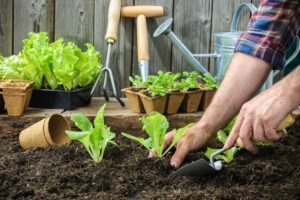So many people have a liking for gardening, but only a few get it done really correctly. There are multiple tiny things that need to be paid attention to, because they are the decisive factors of whether the plants will grow successfully or not. Keeping this in mind, we decided to give an insight on the basic do’s and don’ts of gardening.
Getting started
Calculating the space available for gardening and how to put it to use is the first step. One has to decide on the type of planting- flowers or vegetables or both, and has to plan accordingly. Vegetables can be grown in rows or steps, while flowers are usually grown on boundaries or in patches. Almost 6-8 hours of sunlight is required by nearly every kind of plant; thus it becomes necessary to select a place which provides enough sunlight and shade.
Preparing the soil
If the soil is too tight, it needs to be watered in order to loosen. If it has too much send, one needs to add compost to bring the required nutrition and firmness to the soil. Too clayey soil is also not good for plantations. Since the soil is the most essential part of gardening, it needs to be perfect in order to yield good results.
Once the soil is in good shape, the surface is smoothened and levelled. One must avoid stepping into this prepared soil at all times in order to maintain its texture in its entirety. The bed is then allowed to rest for a few days before planting is done.
Planting
Vegetables should be grown in such a way that there is room for crop rotation. In ideal conditions, crops should be rotated so that a type of plant is grown in the same patch only once in three years in order to retain nutrients of the soil. Moreover, vegetables should be grown according to the season to produce the best yield. The most sustainable path is going organic. Making use of wet waste from the kitchen as compost and cow/horse/goat manure is better for the growing plants as well as the consumers. Organic gardening diminishes the harmful effects that chemical fertilizers have on plants, and inevitably helps in creating healthier food.
With flowers, it becomes crucial to decide which ones to plant directly and which ones to sow only with seeds. While the choices are vast ranging from annual plants (which grow throughout the year like Petunia and Marigold) to perennial ones (seasonal, like Jasmine, Rose, Zinnia), it is important to maintain the quality for regular flower blooming. Care has to be taken to plant these flowers just in the right season so that they get proper time to bloom.
Maintenance
Weeds need to be regularly plucked off as they are the unwanted plant growths that feed on nutrition of crops. Fertilizers should be added at regular time intervals in just the right amount in order to assist satisfactory growth. Maintenance proves to be just as mandatory as all the other steps of gardening for a lush green and blooming garden.
Little things go a long way, and all the meticulous efforts required in this task surely prove worth the while when the garden is in its full glory. Gardening may not be everyone’s cup of tea, but if done in the right manner and by the right person, it serves in wondrous ways.


